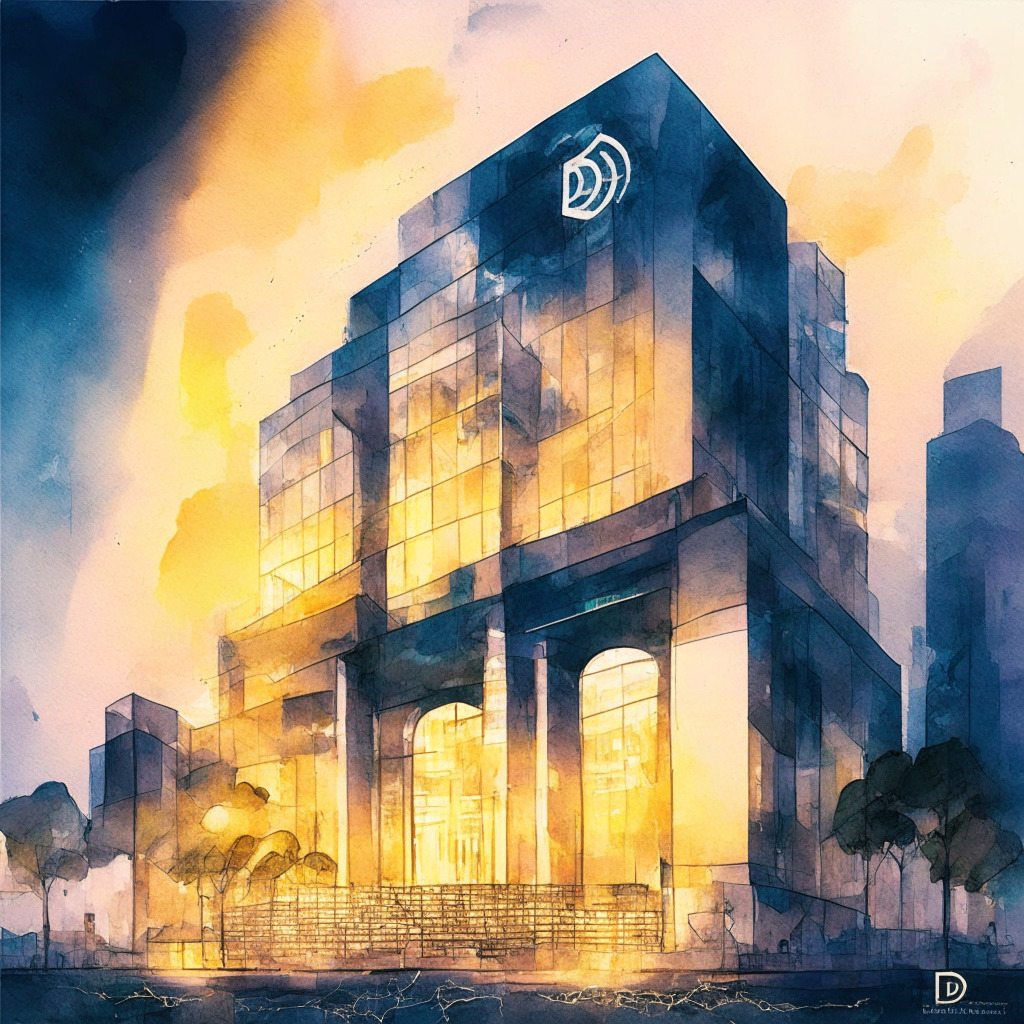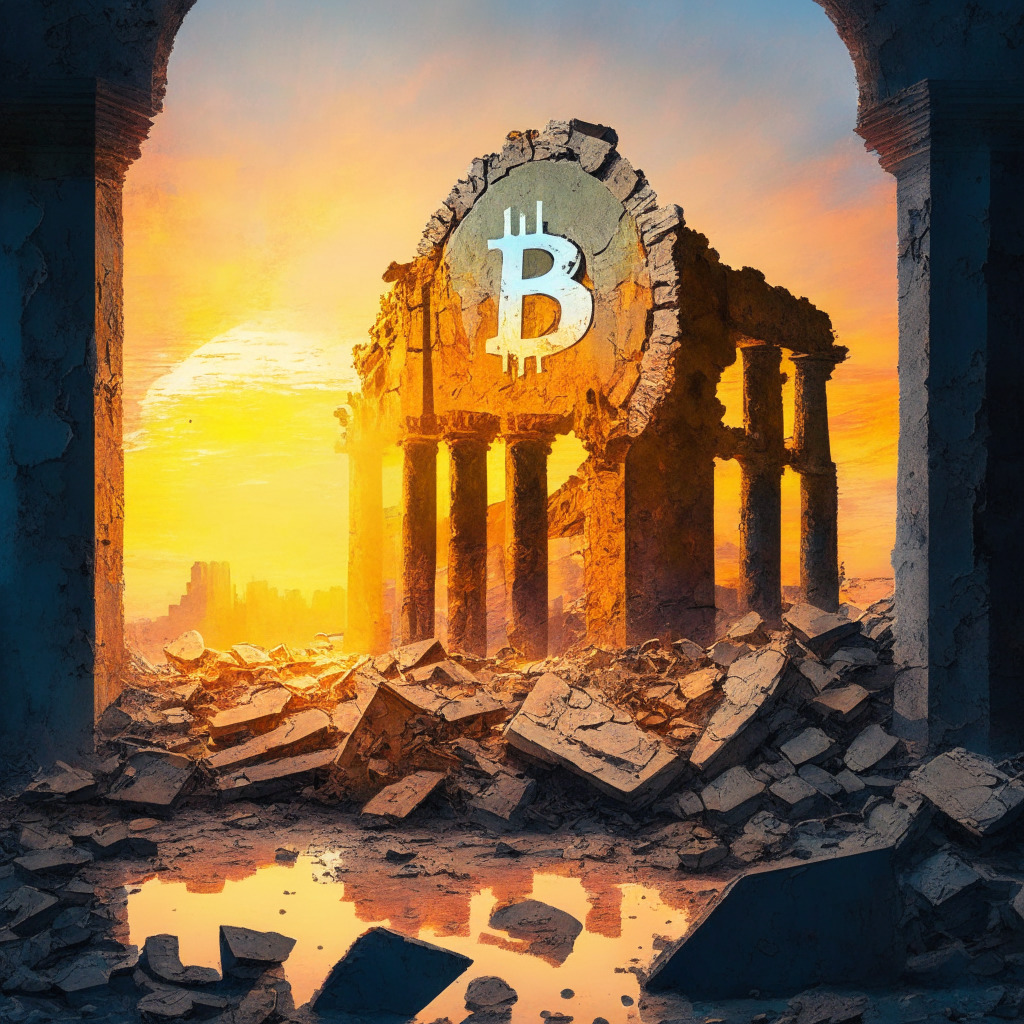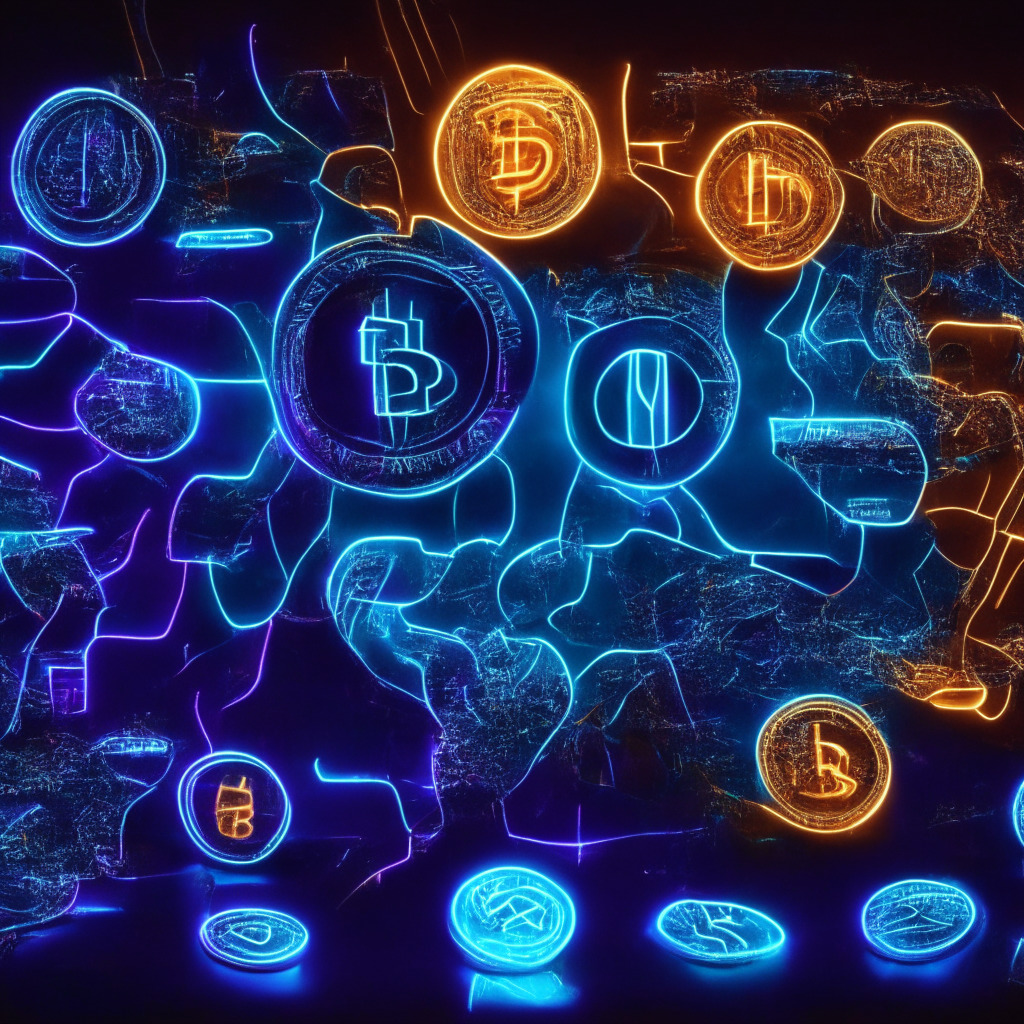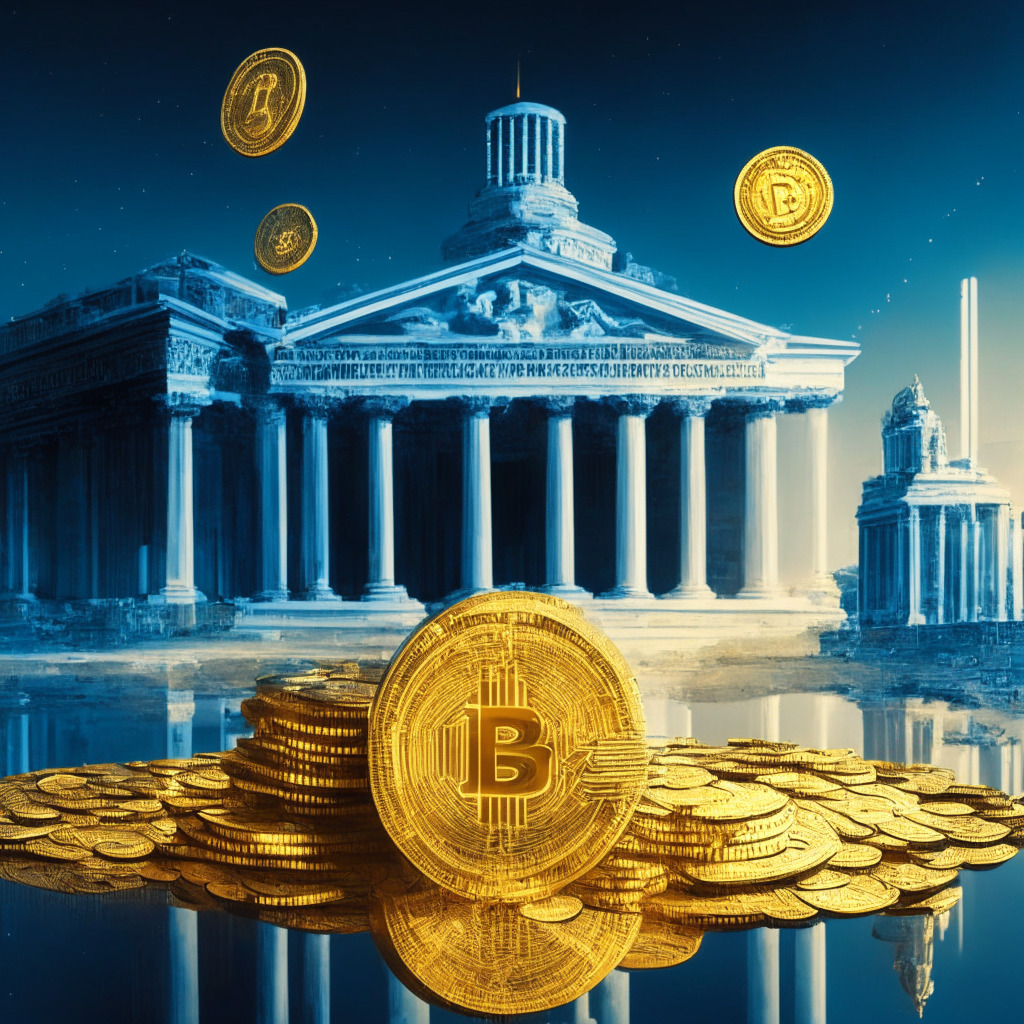Crypto exchanges including OKX and Bybit have delisted Russian banks Tinkoff and Sberbank, due to Western sanctions following the Ukraine invasion. Despite this, the decentralized nature of P2P transactions makes complete enforcement challenging. The delistings highlight the growing reliance on cryptocurrencies amid Russia’s economic instability due to these sanctions.
Search Results for: Central Bank
Brazil’s CBDC ‘Drex’: Triumph in Banking or Gateway to Central Authority Meddling?
“Brazil’s Central Bank recently introduced its central bank digital currency, Drex. However, concerns are raised by the currency’s potential for central authority interference, alongside questions about the movement of assets of popular cryptos following the collapse of Silvergate Bank. Advocates, meanwhile, hail the currency’s potential to improve Brazil’s banking sector.”
Decentralized Lending: The Top Five P2P Platforms Disrupting Traditional Banking
“Decentralized Peer-to-Peer lending platforms like Aave, Compound, MakerDAO, dYdX, and Fulcrum transform the traditional lending system. Leveraging blockchain technology for operations, they offer flexible terms and competitive returns, fostering transparency and independence from traditional banks.”
CACEIS Bank Enters Crypto Custody: Balancing Adoption and Decentralization
CACEIS, the asset servicing branch of Crédit Agricole and Santander, has been registered by the French Financial Markets Authority to provide cryptocurrency custody services, joining major financial institutions like Societe Generale’s Forge and AXA Investment Managers under advanced crypto regulatory frameworks.
Deutsche Bank’s Crypto Custody Move: A Shift Towards Acceptance or Centralization Concerns?
Deutsche Bank, Germany’s largest banking institution, has applied for a digital asset custody license from the German financial regulator BaFin, signaling a shift in attitude towards the crypto sector. While this move increases acceptance of digital assets, it also raises concerns about excessive centralization and potential regulatory challenges.
Deutsche Bank Dives into Crypto Custody: Milestone or Centralization Concern?
Deutsche Bank, with $1.3 trillion in assets, has applied for a digital asset custody platform license from Germany’s finance regulator. This move positions the bank to potentially establish a minimum viable product in 2021, signaling a significant step toward embracing digital assets in the traditional financial sector.
Bank of China Issues Tokenized Notes: Hong Kong’s Path to a Crypto Hub and Decentralization Debate
BOCI, the investment arm of Bank of China, partnered with UBS to issue tokenized notes on the Ethereum blockchain in Hong Kong, marking a significant step towards integrating blockchain technology and tokenized assets into the traditional financial industry. As Hong Kong embraces cryptocurrency regulation, this move signals a positive shift in the digital economy landscape and could inspire further innovation.
Samsung and Bank of Korea’s CBDC Offline Payments: Pros, Cons, and the Centralization Debate
Samsung Electronics and the Bank of Korea’s joint research initiative aims to implement central bank digital currency (CBDC) based offline payments on Samsung Galaxy devices. This development seeks to reduce card and cash payments while addressing security issues, network connectivity challenges, and promoting financial stability. However, the crypto community raises concerns about potential financial surveillance and increased centralization.
Bitcoin and Gold Thrive Amid US Banking Crisis: A Tipping Point for Decentralized Assets?
Bitcoin surges above $29,000 as investors seek alternative assets amidst concerns over the ongoing US banking crisis. Gold hits new all-time highs while the banking sector’s perceived stability is debated, making decentralized assets more attractive for wealth preservation.
Banking Crisis Impact on Bitcoin and the Future of Decentralized Finance
As the banking crisis continues, Bitcoin’s value surges amid financial turmoil, with investors potentially seeking alternatives in decentralized digital assets. Market participants should stay informed of developments and risks in both traditional banking and the evolving digital asset world to maintain financial stability.
Bitcoin Soars as Bank Failures Expose Traditional Finance Flaws: A Decentralized Solution?
As financial markets reel from bank failures, Bitcoin’s price surges to $28,500, showcasing its resilience and being viewed as a safe haven for investors. The decentralized nature of digital currencies stands out as a welcome alternative amid traditional financial institutions’ immense strain.
Bitstamp’s Crypto Partnership with European Banks: EU Embrace vs. US Hesitance
Bitstamp, the world’s oldest crypto exchange, is negotiating with three major European banks to enable their entry into cryptocurrency services. This represents the different regulatory approaches between the EU, with its recent progressive MiCA regulations, and the more challenging US environment. Recent restrictions by Bitstamp on specific services for US users highlight this regulatory divergence.
Decoding The Future: Blockchain, Bitcoin, and the Fear of Centralized Digital Currencies
“Blockchain technology and cryptocurrencies are transforming financial infrastructures, providing a decentralised exchange method. Cryptocurrencies like Bitcoin could pave the way for a transparent, corruption-free global currency. However, concerns about government control, environmental impact, and the implications of Central Bank Digital Currencies (CBDCs) are also emerging.”
Navigating the Tightrope: Looking at Sam Bankman-Fried’s Fraud Case and a Crucial Paradox in Blockchain
“Amid accusations of fraud against former FTX CEO, Sam Bankman-Fried, one can see the challenge of balancing entrepreneurial audacity and legality in the expanding crypto space. As blockchain technologies venture into numerous sectors, the resolution of potential legal disputes can determine industry credibility.”
Decentralization Test: The SBF SRM Saga and What It Means For Crypto Authority
“In 2021, Sam Bankman-Fried extended the lockup period for his employees’ SRM holdings, sparking debate about the ethos of decentralization in crypto markets. This controversial move coincided with the rise and fall of the SRM token, further leaving the crypto community questioning the control in decentralized markets, and the tricky balance between regulation and restrictive control.”
Unpacking Project Atlas: A Centralized Perspective on Decentralized Markets
‘Project Atlas’, pioneered by Bank of International Settlements and various European Central banks, is developing a proof of concept system tracking on-chain and off-chain cryptocurrency transactions. The project aims to understand macroeconomic relevance of cryptocurrency markets and decentralized finance, offering transparency and potential risk mitigation.
Rosbank’s Bold Endeavor: Embracing Digital Ruble Amidst Security Concerns and High Costs
“Rosbank, a trailblazer in the digital currency revolution, invested $1.6 million on integrating its systems with the digital ruble merely two months into the CBDC pilot. Emphasizing on secure transactional gateways, engaging complex cryptography solutions, and investing in specialized expertise, Rosbank stands resolved to overcome challenges of safety concerns, technological hurdles, and costly investments in this digital financial infrastructure.”
Exploring Russia’s Pivot to Crypto: Boosting Trade Ties or Cannibalizing Traditional Banking?
Russian entrepreneurs aim to use “digital assets” and a “unified digital currency” for trade with BRICS and other nations. The idea of utilizing digital financial assets (DFAs), which may encompass digitized commodities, CBDCs, digital securities, cryptoassets, and stablecoins, in international payments is garnering attention. The possibility of creating a unified digital currency for cross-border transactions is also being evaluated.
Cross-Border CBDCs: A Look at Recent Trials and Cryptocurrency Platform Bankruptcies
“France, Singapore, and Switzerland recently experimented with cross-border Central Bank Digital Currencies (CBDCs) using public blockchain and DeFi technology in a venture named Project Mariana. Despite successful trials, further investigation and iterations are required to fully understand the complexities of implementing such systems.”
Hypothekarbank Lenzburg Navigates The Blockchain Wave: A Swiss Tale of Digital Assets & Risks
“Hypothekarbank Lenzburg, a Swiss bank with over $7 billion assets, has joined the Six Digital Exchange, becoming the sixth Swiss bank to do so. This move enables the bank to trade a variety of digital securities on a blockchain-oriented platform.”
Swiss Bank Joins Crypto Exchange – A Bold Leap or Risky Venture?
“Hypothekarbank Lenzburg, a Swiss bank with over $7 billion in assets, will join the Central Securities Depositary of SDX crypto exchange. This expands the bank’s role in digital assets including token issuance, digital value rights listings, and custody, bolstering its presence in the thriving crypto market.”
Unveiling the Privacy vs Transparency Tug-of-War in Bankruptcy Proceedings: FTX Trading Case Study
This excerpt explains the clash between respected media houses and FTX Trading Ltd. over the redaction of customer data in bankruptcy proceedings. Media organizations argue for transparency while FTX and the Creditors Committee favor privacy, shaping the way customer data is handled in future bankruptcy cases.
Decoding Chainlink’s Multisig Wallet Controversy: Centralization Concerns Vs. Market Performance
Chainlink recently altered its multisig wallet’s signature rule, shifting from a 4-of-9 to a 4-of-8 requirement. Critics suggest this change and removal of a wallet address may indicate potential centralized control risking the DeFi ecosystem’s integrity. Regardless, Chainlink maintains its utility in DeFi projects and its token value keeps growing.
UnionBank Steps Into Crypto Arena: Landmark Move Towards Future-Ready Banking in Philippines
The Philippines’ Union Bank has become the first licensed bank in the country to serve as a virtual asset service provider, validated by the Bangko Sentral ng Pilipinas. Alongside, it’s introducing a feature for trading cryptocurrencies directly through its mobile app, marking a significant stride in digital banking transformation.
Traditional Finance Players Diving into Crypto: Progress or Path to Centralization?
“The recent trend of traditional finance players entering the cryptocurrency market has the potential to disrupt norms, increase flexibility, and power the underbanked. However, it also presents challenges, such as volatility, fraud, and security issues. Moreover, there’s a debate surrounding if this move could lead to centralization in an inherently decentralized space.”
Cryptocurrency’s Bold Advances & Legal Challenges: Analyzing Deutsche Bank, South Korean Bitcoin Lenders, EY.ai & More
“Deutsche Bank collaborates with Taurus, providing custody services for clients’ cryptocurrencies and tokenized assets. Meanwhile, Delio, a South Korean Bitcoin lender, contests fraud and embezzlement allegations, exposing lack of clear virtual asset regulations. Also, Ernst & Young unveils AI platform, and Mauve, a Decentralized Exchange, launches its operations.”
Unraveling the Future of a Decentralized Economy: Pros and Cons of Crypto Finance
“Bitcoin and decentralized finance (DeFi) offer a financial alternative to conventional systems, providing a solution to issues like inflation and institutional insolvency. However, challenges like Central Bank Digital Currencies (CBDCs), centralized exchanges, and global instability could impact DeFi’s potential benefits”
KBank’s $100 Million Fund: A Leap into the AI, Web3, and Global Fintech Future or Risky Business?
Thailand’s Kasikornbank (KBank) has launched a $100 million fund targeting Artificial Intelligence (AI), Web3, and global fintech startups. With backing from the Bank of Thailand, the fund aims to drive global innovators to advance finance in the APAC region.
Navigating the Regulatory Tussle: Decentralization vs Security in the Digital Asset Realm
The rapid transformation in technology and finance is due to the expanding incorporation of blockchain technology and digital assets. While this revolution brings significant advantages, it also comes with regulatory complexities. For instance, the recent verdict of the Delaware bankruptcy court granting FTX the right to sell their digital assets highlights control issues contrary to blockchain’s decentralized nature.
Navigating Bankruptcy: How Crypto Exchange FTX Plans to Leverage $3.4 Billion in Digital Assets
Judge John Dorsey has permitted FTX, a bankrupt crypto exchange, to sell and invest its $3.4 billion crypto assets to pay off creditors. FTX’s strategy involves hedging its assets to lower risk and staking digital assets for low risk returns. They also aim to leverage expert knowledge in navigating the volatile crypto market.
Emerging G20 Crypto Regulations: Trading Anonymity for Safety, or a Blow to Decentralization?
“G20 is implementing an international framework for crypto assets that promotes regulatory compliance within the blockchain industry. Although this move is a significant step forward, it raises concerns about user privacy and counters the fundamental decentralized ethos of blockchain technology.”
Decentralized Finance vs Centralized Finance: Coming Conflict or Synergetic Co-Existence?
“CEO of Binance, Changpeng Zhao, predicts a future where DeFi surpasses CeFi, fueled by his belief in the potential of decentralization. However, the Bank for International Settlements argues that pure DeFi has limited real-world application due to its requirement for centralized oracles.”































